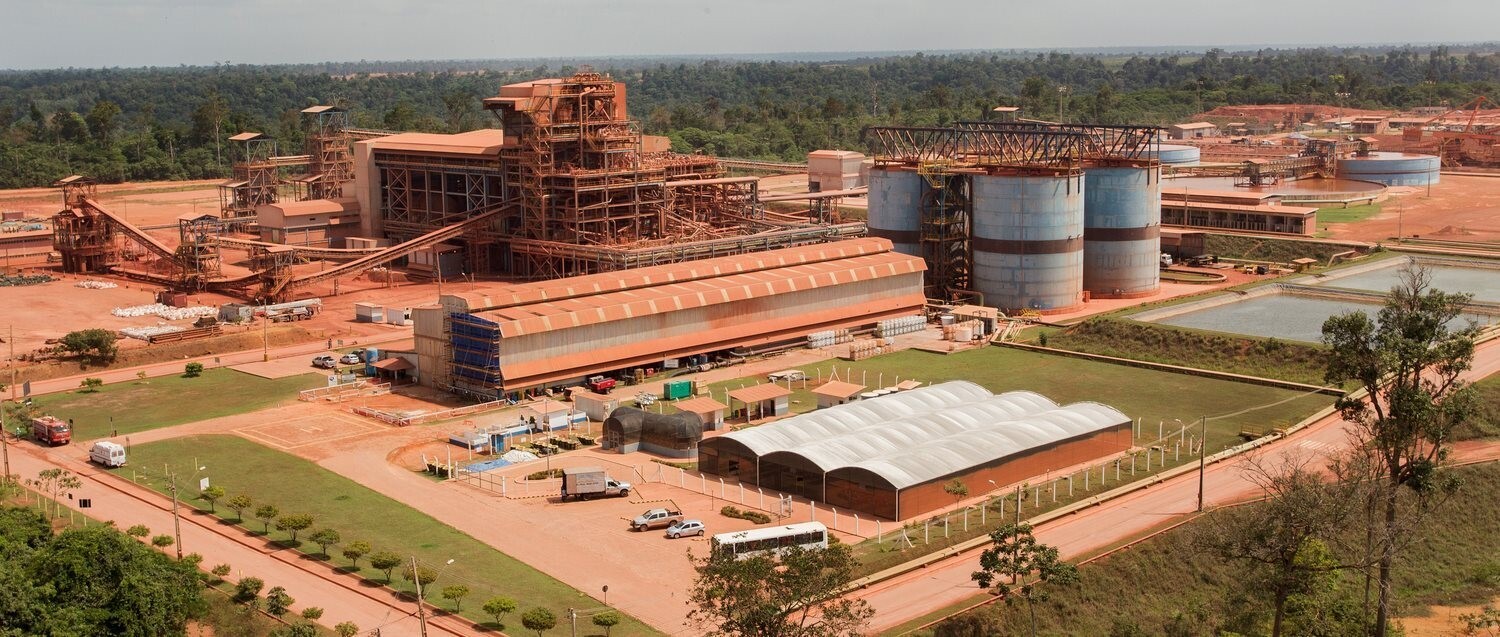Hydro invests R$1.6 billion in decarbonisation projects in Pará
Aiming to achieve its global decarbonisation goals - a 10 per cent reduction in carbon emissions in all operations worldwide by 2025 and 25 per cent by 2030 - Hydro is investing R$1.6 billion in projects to decarbonise its operations of alumina production and bauxite extraction in the state of Pará.

According to Carlos Neves, VP of Operations, in the areas of bauxite and alumina the company created a road-map for decarbonisation until 2050, with the first stage aiming to reduce emissions by 16 per cent, in order to contribute to the group achieving the global target of 10 per cent reduction by 2025. To this end, some projects were developed along the decarbonisation route, with emphasis on the alumina plant, located in Barcarena (PA).
He adds that although Hydro is well positioned in the aluminium industry in terms of carbon emissions, emitting just 0.65 t of carbon per tonne of alumina produced, compared to an industry average of 1.3 t of CO2 per tonne, its energy matrix is not the cleanest, because it still uses BPF fuel oil and coal. Therefore, the first stage of decarbonisation involves the elimination of BPF in the alumina operation equipment that uses the fuel, that is, 7 calciners and 6 boilers.
To allow the replacement of heavy oil in calciners and boilers, Hydro promoted the arrival of natural gas to Barcarena – which will bring benefits to other companies and the population – and all equipment that operates with BPF will be converted to natural gas. This, according to Carlos Neves, will enable a significant reduction in the carbon footprint, as 700 thousand tonnes of CO2 will be reduced, in addition to 70 per cent of Nox and 40 per cent of SOx.
To replace coal, which is the steam production matrix, the company developed an electric boiler and installed a pilot project in order to test the equipment's performance in the production process. “The boiler worked very well, so we are implementing two more. Therefore, we will have a total of three electric boilers, which provide an additional reduction of 500 thousand tonnes of CO2”, says the executive.
Neves adds that, when the two projects are completed, which should occur by the end of 2024, Hydro will stop emitting 1.2 million tonnes of carbon in its alumina operation. At the moment, three calciners have already been converted to natural gas and, of the three electric boilers, one is already installed and two others are in the process of being installed.
In parallel to these projects, Hydro developed, together with its energy arm, Hydro Rein, and the companies Equinor and Scatec, renewable energy projects to supply electric boilers. The first project developed was inaugurated on April 9, in Açu, Rio Grande do Norte. This is the Mendubim solar energy project, with a capacity of 531 MW, in which Hydro Alunorte has a 10 per cent stake and the other companies 30 per cent each. Hydro will be able to use up to 60 per cent of the energy produced by the complex, for a period of 20 years, at a pre-established price in dollars.
Another project that is under development is Ventos de São Zacarias, in Chapada do Araripe, between the states of Pernambuco and Piauí, which will also produce renewable electricity to power Alunorte. The two projects allow for a very important reduction in Hydro Alunorte's carbon footprint.
At the mine, where it has a smaller footprint, Hydro is adopting initiatives such as using electric trucks to replace conventional ones. There are currently three trucks being tested and the idea now is to replace 100 per cent of the fleet with electric trucks as the useful life of the equipment expires. The smaller vehicles travelling through the mine will also all be converted to electricity.
“With this, we are going to the forefront as an industry with the lowest carbon emissions and the production of green aluminum is already starting to become a concrete reality. The next stage will be between 2030 and 2050, when we will eliminate all residual emissions in our operations. With a 33 per cent reduction in 2024, 70 per cent in 2030 and the remainder until 2050, when we depend on new technologies”
concludes Carlos Neves.
This news is also available on our App 'AlCircle News' Android | iOS

























